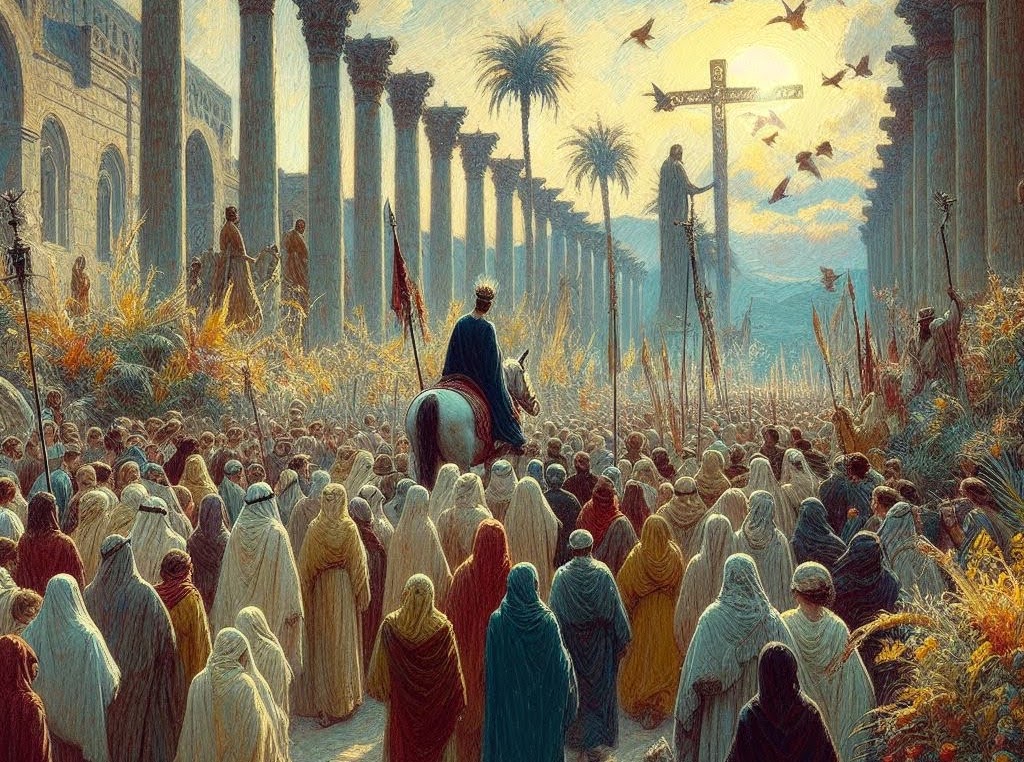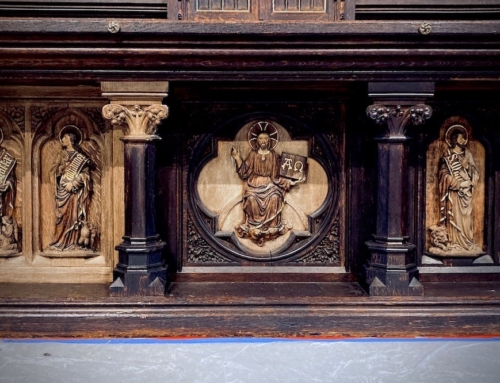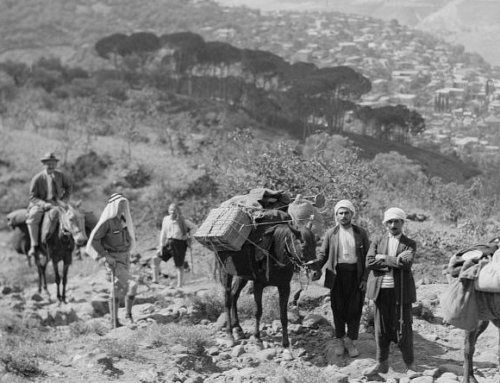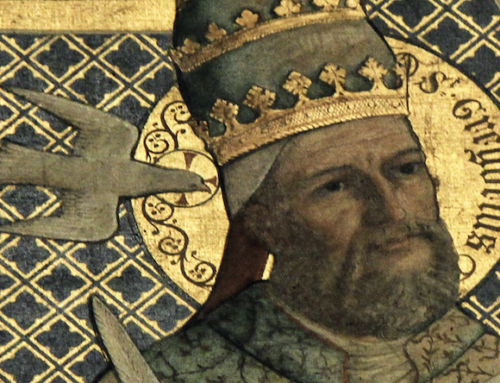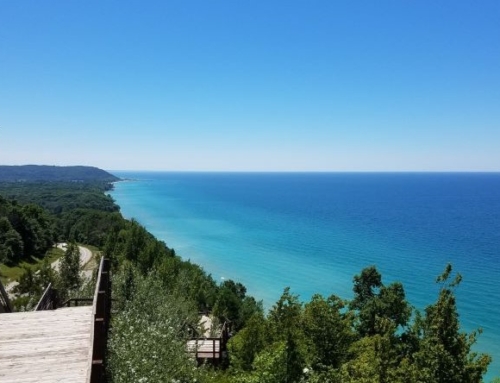What if Jesus were to win? What if Pilate were to be convinced, wash his hands of the crowd, and release Christ to complete his kingly mission? Even with the Resurrection a week away, I find the prospect tempting. Two thousand years later, John’s Gospel has us on the edge of our seats. Just 20 minutes ago, we were standing in the crowd, crying Hosanna. Surely we will not crucify our king.
The crowd cries out, “Hosanna,” both a cry for salvation and a song of praise. But this is not the praise of the Lord—this is a blessing for a king. The crowd, “in their blindness, have lessened his praise, for the Psalm praises our Lord as God, but they praised him as a temporal king” (Aquinas’ Commentary on John). And should they not? For a battered and oppressed people, this is a sign of hope. After all, the Lord has promised a king on the throne forever (Jer 33:17). Even the disciples, who hung on Christ’s every word, join with the crowd in great expectation. Be it prophecy, piety, or just plain human justice, I’m ready for Pilate to give in.
Palm Sunday sets a new pitch: in with a bang, and out with a whimper. Holy Week is salvation history, unfolding at a glance. We know the way our God usually works. The barren wife. The humble and lame. The weak shaming the strong. These are our heroes. Our God serves the best wine last. He turns jars of water into wine, a purification rite into merriment (John 2:6). But, as if to try our patience and persistence, Christ presents himself as an earthly king—in with a bang, and out with a whimper. He serves the best wine first, saving the bitter dregs for last. Christ comes clothed in the raiment, as the world would have him—crowned to the satisfaction of Jews, robed in the wisdom of the Gentiles. The Gospel has been calling us to forget our worldly expectations, but now Christ seems to fulfill them.
Ah, but we know the full story—Christ’s true victory is still to come. But the liturgy demands we stand in the crowd. It demands we cry out for an earthly king. Christ’s entry into Jerusalem is more than dramatic foreshadowing. Palm Sunday brings us back to the early days of our faith when the Lord was our strength. No cross. Just loaves and fish. Yet how quickly it brings us to the cross, as if for the first time. Like the other disciples, Christ continues to set, break, and renew our expectations. Today we regain our earthly hope, only to lose it.
Palm Sunday takes us on a new turn, but where it is leading us is no mystery. Despite the outward show, we’re making our way to an empty tomb. Christ renews our worldly hope, only to shatter it. We’re reminded that Christ transcends not only death, but even the old life. He calls us to something more than earthly victory. He points us to his true glory—not in the thunder, or the fire. Not with the crowds and courtiers. But in the still small voice. No longer a dying whimper, but the whisper of new life. No longer of agony, but consolation. The hope of a king, not as the world would have it, but as the Lord himself gives it.
✠
Image: Jesus Entering Jerusalem on Palm Sunday (Generated with AI)

